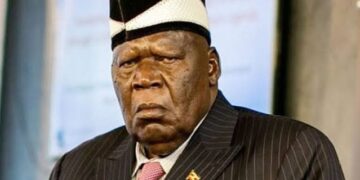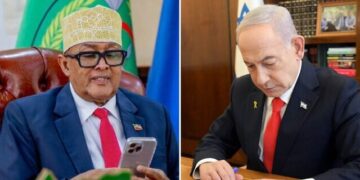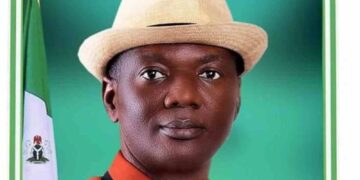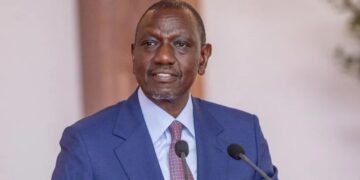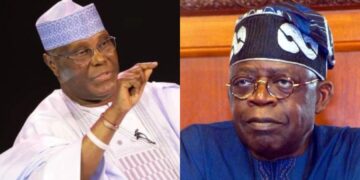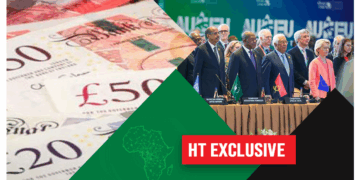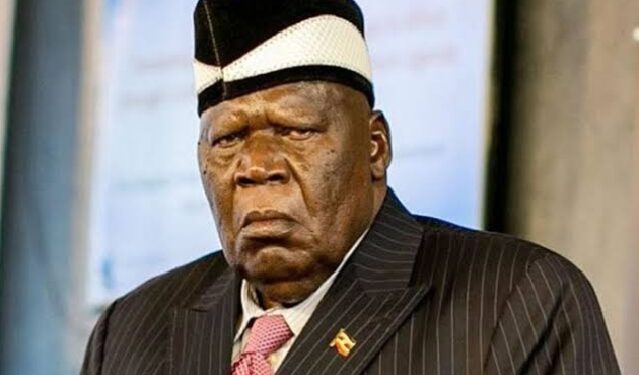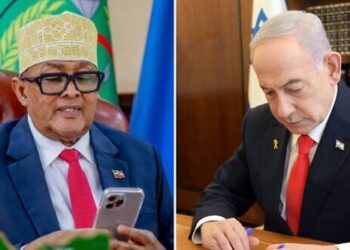By Emmanuel Nduka
Concerns over the ageing leadership in African politics have been reignited after Uganda’s Second Deputy Prime Minister, General (Rtd) Moses Ali, 86, was nominated for re-election in a highly unconventional manner—without ever stepping out of his car.
A video circulating on social media shows the retired general, visibly frail and seemingly in discomfort, seated in a vehicle during the nomination process.
He appeared unable to lift his head or speak clearly, rolling his tongue in apparent unease. Despite his condition, the nomination proceeded as planned.
Ali, who is vying to retain his East Moyo County parliamentary seat in Adjumani District under the ruling National Resistance Movement (NRM) party, was formally nominated by NRM Electoral Commission Chairperson Dr. Tanga Odoi. The confirmation was made at the car window, sparking widespread debate about leadership capacity and succession in Uganda.
No public remarks were made by Ali, who did not address the media during the brief appearance.
A veteran of Uganda’s turbulent political history, Moses Ali was born in 1939 and rose through the military ranks during Idi Amin’s regime, later serving as Finance Minister. In the early 1980s, he led the Uganda National Rescue Front (UNRF), a rebel movement that eventually reconciled with President Museveni’s NRM. Since then, Ali has held numerous government roles, including in Parliament, the Cabinet, and the military, where he holds the rank of General.
He has represented Adjumani West County since 2011 and continues to enjoy strong support among the Madi community in the West Nile region, who regard him as a key advocate for their interests.
Also nominated this week was Uganda’s Third Deputy Prime Minister, Rukia Nakadama, who will contest for the Mayuge District Woman MP seat.
However, Ali’s nomination has drawn heavy criticism on social media, where many users questioned the continued political dominance of elderly leaders. Critics labeled the development as a symptom of entrenched power, lack of political renewal, and greed.
“The man in the passenger seat is clearly exhausted. Aren’t there young people in the country?” one user, @CityBoyABJ, posted on X (formerly Twitter).
“This obsession with power is toxic. They want to control everything,” wrote another user, @Topecole.
“It’s shameful. Africa will never be taken seriously on the world stage if this continues,” added @Just_tina69.
Others expressed frustration over citizens’ failure to demand more accountability and transparency from political leaders.
“Leadership is treated like a personal privilege, not a job with deliverables. It’s on us, the citizens, to hold them accountable,” said @Okeyhillsbay.
“Does he even know where he is or what he’s been nominated for? The greed of African elites is what’s killing the continent,” commented @Bunmi_speaks.
The controversy surrounding Moses Ali’s nomination has reignited calls for generational change in African politics, with critics demanding urgent reforms to ensure leadership remains responsive, capable, and representative of the continent’s youthful population.
